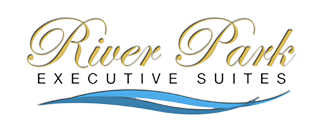Memorable Impressions: A visually appealing and unique office space can leave a lasting impression on visitors, clients, and business partners. It creates a memorable experience that reinforces positive associations with your brand and sets you apart from competitors.
Word-of-Mouth Marketing: A great office space can become a talking point among clients, visitors, and employees, generating positive word-of-mouth marketing and reinforcing your brand's reputation in the industry.
Overall, investing in a great office space is not just about creating a functional workspace; it's also about shaping how your brand is perceived by others. By aligning your office environment with your brand values and identity, you can create a positive impression that strengthens your brand image and helps drive business success.
Brand Personality: Your office space is an extension of your brand identity and can help communicate your brand values, culture, and personality. Whether it's through the design, layout, or choice of amenities, your office space can convey what your brand stands for and what sets it apart from competitors.
Memorable Impressions: A visually appealing and unique office space can leave a lasting impression on visitors, clients, and business partners. It creates a memorable experience that reinforces positive associations with your brand and sets you apart from competitors.
Word-of-Mouth Marketing: A great office space can become a talking point among clients, visitors, and employees, generating positive word-of-mouth marketing and reinforcing your brand's reputation in the industry.
Overall, investing in a great office space is not just about creating a functional workspace; it's also about shaping how your brand is perceived by others. By aligning your office environment with your brand values and identity, you can create a positive impression that strengthens your brand image and helps drive business success.

Having an office space can be instrumental in helping your company grow for several reasons:
Professional Image: A physical office space provides your company with a professional image and legitimacy, which can be essential for building trust with clients, partners, investors, and other stakeholders. It signals that your company is established, credible, and serious about its business.
Collaboration and Innovation: Office spaces facilitate collaboration and teamwork among employees, fostering creativity, innovation, and problem-solving. Face-to-face interactions, brainstorming sessions, and spontaneous conversations are easier to facilitate in a shared physical space, leading to new ideas and solutions that can drive growth.
Networking Opportunities: Office spaces offer opportunities for networking and building relationships with other professionals, businesses, and industry contacts. Being part of a shared workspace or business community can open doors to new partnerships, clients, and opportunities for growth.
Attracting and Retaining Talent: A well-equipped office space can help attract top talent who are drawn to companies that provide inspiring work environments. It also plays a role in retaining employees by creating a positive work culture, fostering a sense of belonging, and providing amenities and facilities that support employee well-being and productivity.



